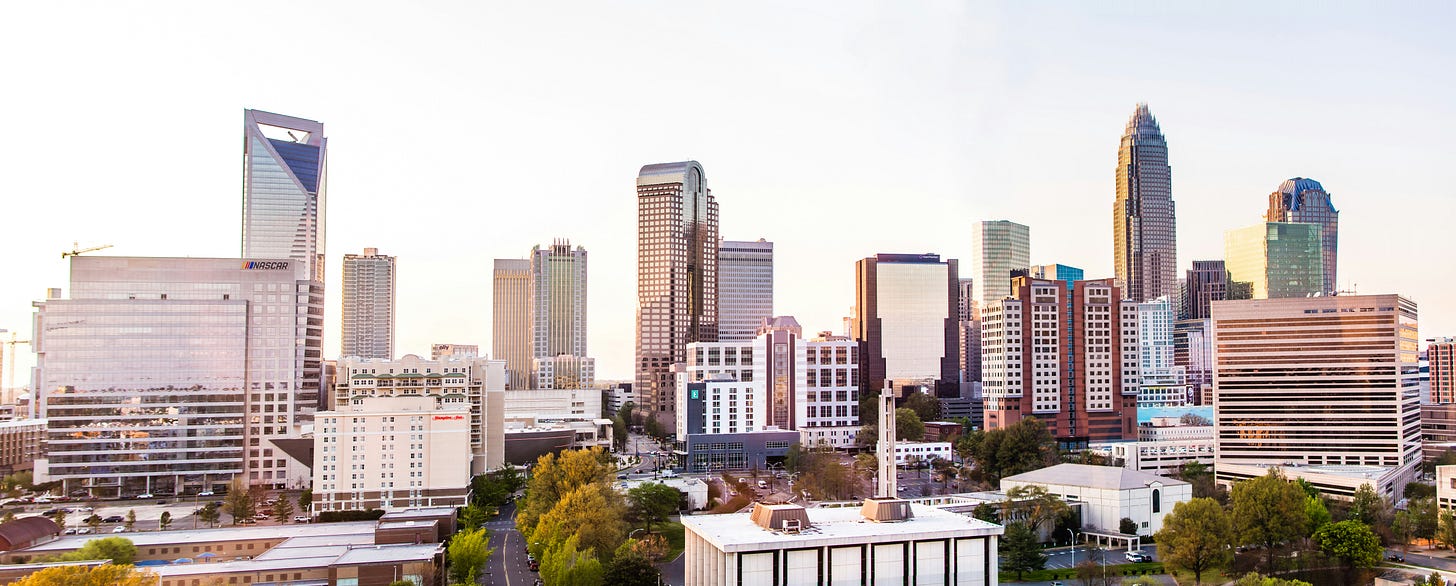I’ve lived in the suburbs of the city of Charlotte for five years now. I love driving into the city, catching the first glimpse of the skyscrapers peeking over the trees in the distance. In Charlotte, we call the city center “Uptown,” supposedly because it sits on a hill. If someone calls it “Downtown” you know they’re not from around here. I’ve attended church at First United Methodist in Uptown for years, cheered on my home soccer club in Uptown for three seasons, received spiritual direction at the historic rectory of St. Peter’s Catholic Church in Uptown since before I lived here, and the last few weeks I helped host my denomination in Uptown at the convention center.
It wasn’t until the other week that I noticed something—I know where these places are in relation to my drive in from the suburbs, but I don’t have a sense of where they are in relation to one another. It took me five years to realize the Catholic Church is just a few blocks from the soccer stadium. In my mind they felt like distinct places that weren’t all that close to each other. I haven’t spent enough time immersed in the city center to understand how these places are interrelated. And so it often is in our understanding of our own communities.
Complicated Problems Require Complicated Solutions
When we look at the social dynamics of our community as distinct phenomenona, we will fail to see the bigger picture, and we’ll draw inadequate conclusions. Over the years, I’ve seen countless churches design community ministries that offer band aids to gaping wounds because they have looked too narrowly at a social problem and thought they could fix it with a simple solution.
The unfortunate reality is that social problems are complicated and require complicated solutions. Racism, poverty, addiction, homelessness, hunger, unemployment, mass incarceration, loneliness, and mental illness are complicated problems interwoven into our communities through history, policy, and systems. The only way to make a real dent in these areas is to organize the wider community into cooperative social action.
In Boone I was able to witness this a few times. A school social worker organized a community wide movement to address childhood trauma. And King Street Church was part of a movement to address the underlying causes of recidivism. It’s slow work. It requires comprehensive listening and it offers very little immediate gratification, but it has the ability to transform communities.
Get started by doing the Systems Mapping Activity:





Complexity is beautiful!